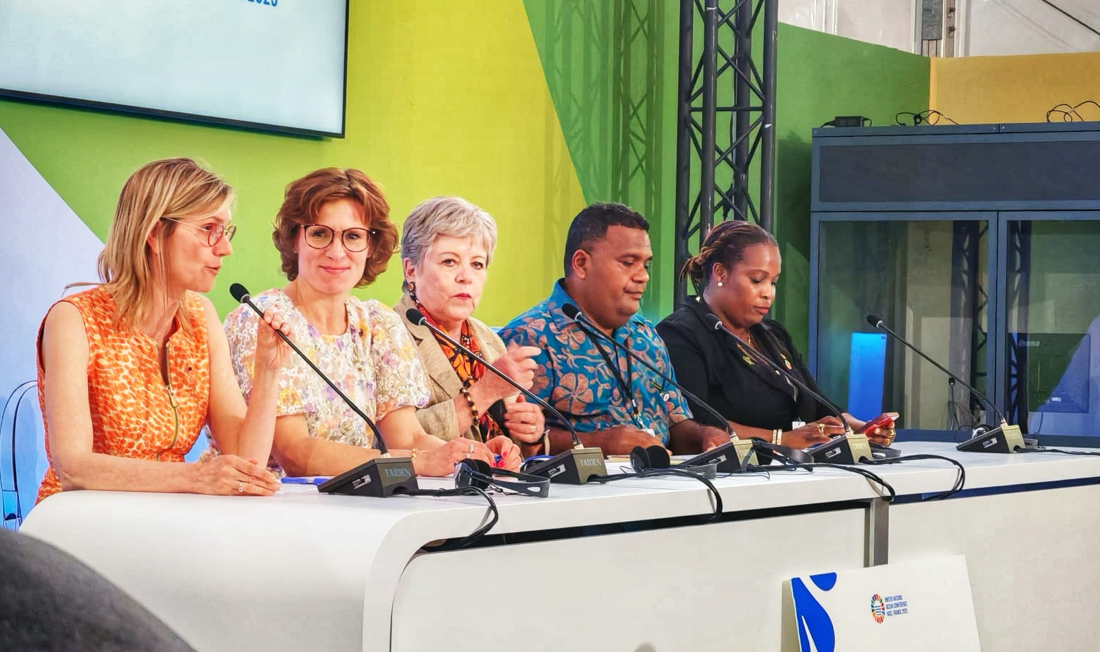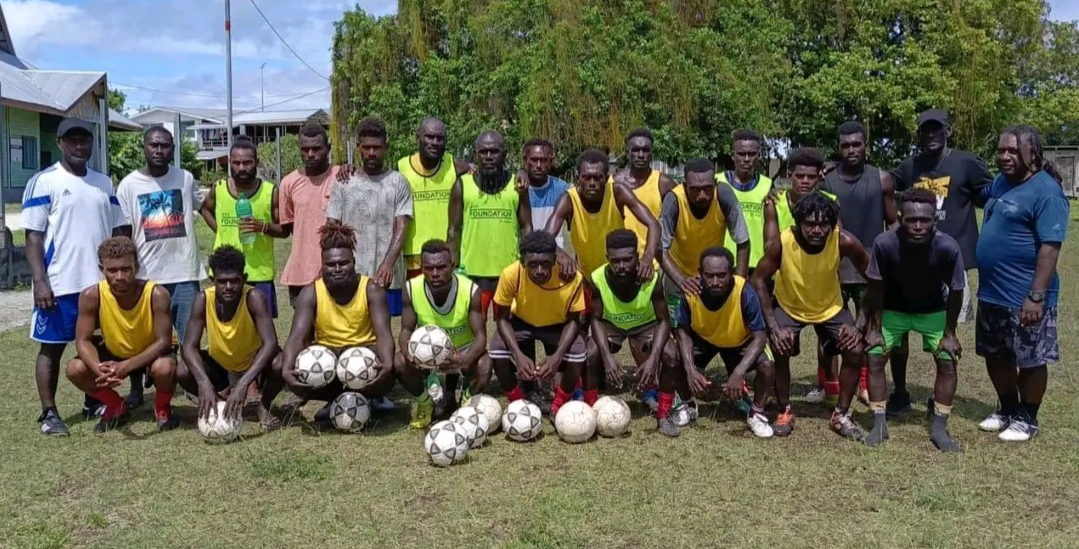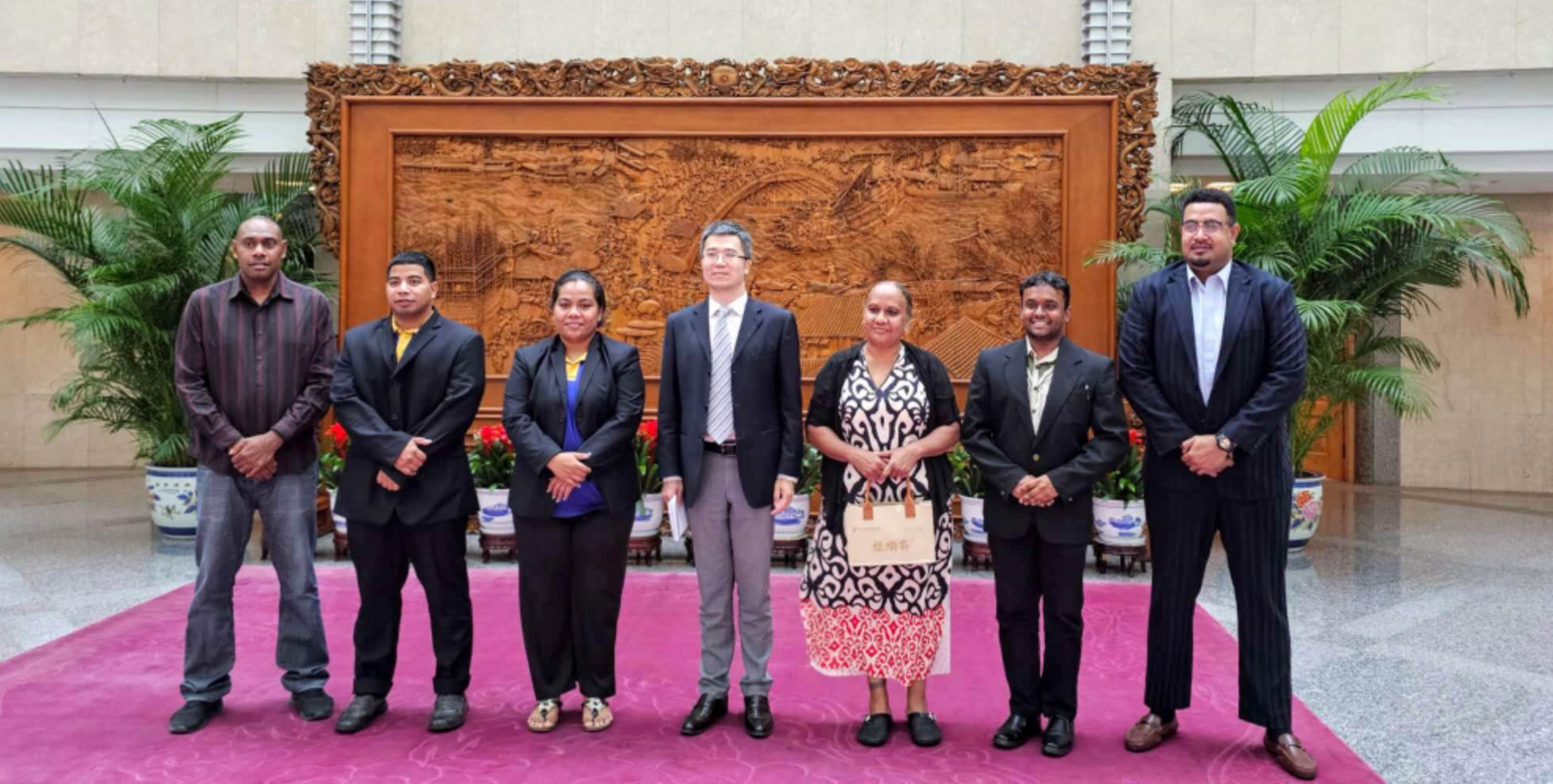Nice, France – The Solomon Islands on Wednesday reaffirmed its strong commitment to ocean conservation during the launch of the “Closing the Ocean Gap” report at a side event of the 3rd United Nations Ocean Conference (UNOC3), held onboard the OceanXplorer.
Hon. Trevor Manemahaga, Minister for Environment, Climate Change, Disaster Management and Meteorology, delivered the national statement highlighting the country’s commitment to the global 30×30 target—protecting 30% of the world’s oceans by 2030.
The Solomon Islands aims to increase protection of its marine waters to 15%, covering approximately 59 million acres—an area roughly the size of Italy.
This expansion reflects the country’s ambition to safeguard marine biodiversity for future generations.
Minister Manemahaga emphasized that effective marine protection is not just about scale but also about protecting areas with significant biological diversity.
To this end, the government plans to establish multi-zoned Marine Protected and Managed Areas (MPAs/MMAs) within the waters of Temotu and Makira Provinces, covering about 27,400 square kilometres.
These MPAs/MMAs will serve as a national flagship for conservation rooted in local values and scientific priorities. Indigenous knowledge, customary governance, and community priorities will shape the marine spatial planning process, ensuring strong local ownership and relevance.
Minister Manemahaga also highlighted the recent discovery of the largest coral colony in the Makira Islands as evidence of the rich biodiversity in these waters and the enduring harmony between indigenous ways of life and nature conservation.
The Solomon Islands’ conservation initiatives will be community-led and inclusive, developed through consultation and Free Prior Informed Consent (FPIC) processes, respecting traditional governance.
The government is finalizing its national marine spatial plan and building a “community of practice” comprising experts and leaders to support knowledge gathering, storage, and analysis for ocean protection.
To ensure the sustainability of these efforts, the Solomon Islands is exploring innovative financing models that bridge the gap between policy and implementation, adapting lessons from other small island developing states.
The Temotu and Makira flagship project will rely on strong collaboration with international partners including the Bezos Earth Fund, Bloomberg Philanthropies, World Conservation Society, WWF, The Nature Conservancy, and Pristine Seas, whose scientific support is acknowledged.
Minister Manemahaga called for increased investment in locally led conservation, stressing that the country’s leadership and traditional knowledge must be recognized and supported as vital contributions to global ocean protection.
“If we are to close the ocean protection gap, we must close the gap between promise and practice. Solomon Islands stands ready to lead—but we cannot do it alone,” he said.
With two pix





